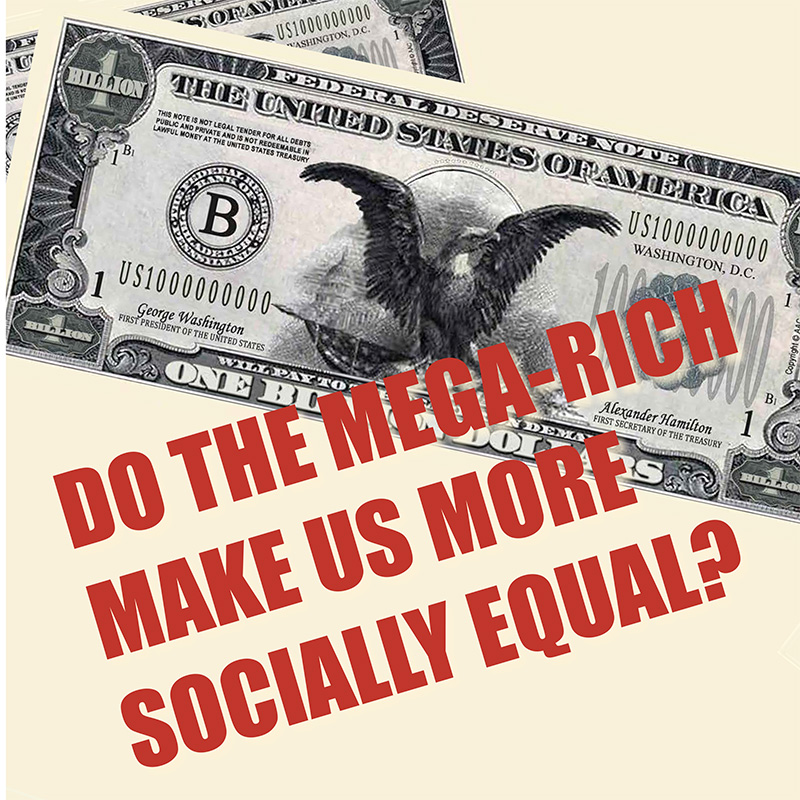Philosopher’s Holiday Lecture: “Do the Mega-Rich Make Us More Socially Equal?”
Rockefeller Hall 200
Désirée Lim, Associate Professor of Philosophy at Pennsylvania State University
Many are concerned about the rise of a new social class: that of the “mega-rich” billionaire class, including highly influential figures like Jeff Bezos, Elon Musk, and Mark Zuckerberg. The “mega-rich” are primarily characterized by the unprecedented scale of their wealth in an age of accelerating material inequality. From the standpoint of distributive equality, egalitarians have clear reasons to object to this era of extreme material inequality and to propose measures to combat it (see, for example, Malleson 2023 and Robeyns 2024, both of which issue calls to abolish the “mega-rich” class through robust systems of taxation). Yet, as Professor Lim will show, it is far less clear what social egalitarians ought to make of the “mega-rich”, and more specifically, whether the presence of the “mega-rich” actually brings about greater social inequality.
This talk explores two puzzles. One is that of contact. After all, the “mega-rich” class are inaccessible—and in some cases invisible or unknown—to typical citizens, and do not have an obvious impact on everyday social spheres. The second is that of levelling-down. The presence of the billionaire class has led to radical shifts in the standards for what constitutes true wealth and, as Lim suggests, a re-ordering of how class hierarchy ought to be understood. For example, millionaires are no longer at the upper rungs of social hierarchy; there is a growing sense that the world is occupied by the top 1% and the “rest of us.” Ironically, the “mega-wealthy” may have brought about more social equality through levelling-down wealth status and its salience for shared social life. Lim argues that this conclusion is perverse: more attention must be paid to how the behavior of the mega-rich indirectly hardens or reproduces social inequality.
This is an endowed lecture under the Philosopher’s Holiday Lecture series and is free and open to the public.
Sponsored by the Vassar Dean of the Faculty.
